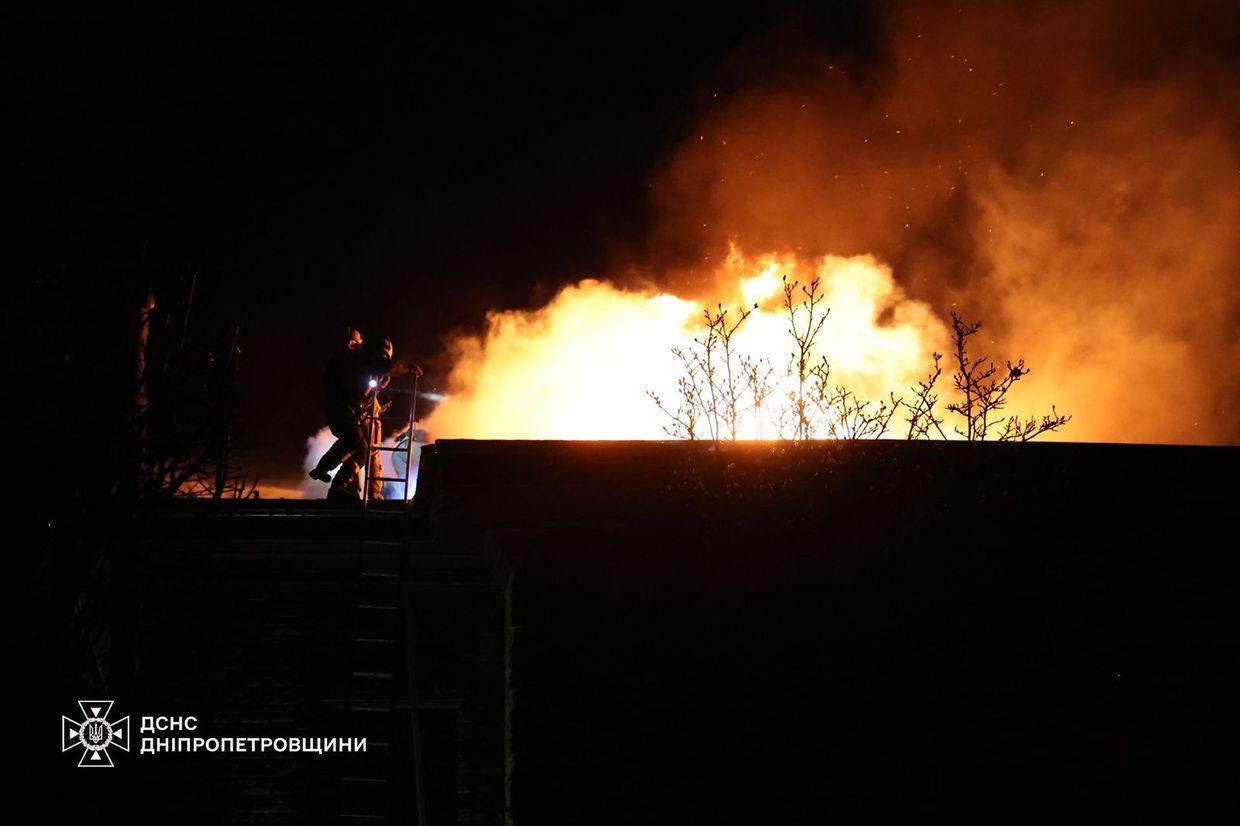
US warned Ukraine, other allies ahead of Putin's 'experimental intermediate-range ballistic' attack
Russia launched a new type of intermediate-range ballistic missile (IRBM) against Dnipro, eastern Ukraine, on the morning of Nov. 21. A U.S. official confirmed to the Kyiv Independent that the U.S. warned Kyiv ahead of the attack that this type of weapon may be used against Ukraine.
"Russia likely possesses only a handful of these experimental missiles," the official said, adding that Ukraine has withstood countless attacks from Russia, including from missiles with significantly larger warheads than this weapon.
Russian President Vladimir Putin confirmed in a televised address to the nation later that day that the attack was a test of Russia's "newest missile," an IRBM called "Oreshnik."
The attack came in the wake of Ukraine's apparent first successful strike on a military target inside Russia using the U.S.-supplied ATACMS missiles. Putin said the strike was a direct response to the U.S. and the U.K. jointly approving Ukraine’s use of Western-supplied long-range missiles to target Russia.
The Russian missile targeted an industrial enterprise in the city, and two fires broke out following the attack, Governor Serhii Lysak said. A rehabilitation center for people with disabilities was damaged as well. At least two people are reported to have been injured.
"Russia may be seeking to use this capability to try to intimidate Ukraine and its supporters or generate attention in the information space, but it will not be a game-changer in this conflict," the official told the Kyiv Independent.
Little is known about the "Oreshnyk" missile referred to by Putin, but military expert Yan Matveev told IStories that it could be a modified version of the Rubezh.
The RS-26 Rubezh intercontinental ballistic missile is reported to have a range of up to 6,000 kilometers and can carry four warheads, each with an estimated payload of 0.3 megatons.
Fabian Hoffmann, a defense expert and doctoral research fellow at the University of Oslo, told the Kyiv Independent that the Rubezh is equipped with a MIRV payload, which stands for Multiple Independent Reentry Vehicles.
Ukraine's U.S.-supplied Patriots have been effective at intercepting the ballistic missiles launched by Russia to date, but according to Defense Express, they are not currently optimized to intercept ICBMs.
If Russia began to regularly launch ICBMs, Ukraine's air defenses would need to be bolstered by more advanced air defense systems like the THAAD (Terminal High Altitude Area Defense), the outlet reported.












